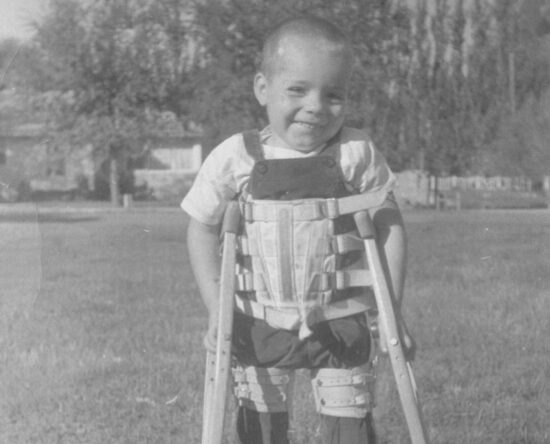What The ADA Means to Me

The American’s with Disabilities Act turns 30 years old this month. Mark Sternhagen, a 1973 graduate of LifeScape who now serves on its board of directors, tells what the ADA means to him.
It is often said that the Americans with Disabilities Act (ADA) is an equal rights amendment for those with disabilities – a starting point to equalize the world for the disabled. It provides basic guidelines for institutions, both private and public, to ensure equal opportunities for all. I like to think of the ADA as a starting point, giving basic rights and guidelines. We need to look beyond those basics rights to go from allowing access to openly welcoming access. People living with disabilities have a lot to offer this world. Beyond the fact that many make extremely hard-working, dedicated employees, they also offer us a chance to see things from new perspectives.
I contracted polio (due to a shortage in the vaccine) when I was just 18 months old. When I started public school in the early 60s there was little to no guidance to help accommodate those with disabilities. In the third grade, I began attending what was then Crippled Children’s Hospital & School, now a part of LifeScape, in Sioux Falls, SD. I received a great education while learning to thrive in a mostly unaccommodating world. I went on to a “normal” college, where I graduated and ultimately began my teaching career. I have been teaching at the collegiate level for 33 years and am still going strong.
Before the ADA was signed into law, things were very different. Infrastructure wasn’t accommodating. If you used a wheelchair, you had to learn to jump curbs and steps, navigate gutters, and maneuver the small ditch between the street and the yard. Furthermore, discrimination wasn’t just legal, it was common. Grocery stores could kick you out for being blind. Banks could refuse to allow service to someone with Down syndrome. Many children with disabilities weren’t even allowed to attend school. They were thought to be inferior, and not worthy of an education. This would lead to children growing up without a basic education or understanding of how to live on their own. The list could go on and on.
With this said, the ADA is not a crutch to be leaned on. It is a banner to be held high, to push for greater awareness, understanding, and acceptance. The ADA was developed to ensure that people with disabilities are provided equal opportunities, to help us recognize that not only are people with disabilities worthy of our respect, but to remind us that every single one of us could one day need more accommodation and easier accessibility. We need to approach equality from our own personal perspective. What if it was my child who needed accommodation? What if it was my sibling? What if it was my parents? My grandparents? What it if was me?
Those with disabilities want more than anything to just fit in and be accepted by society. The ADA paves the way to a better life for people of all abilities, and by doing so, a better life for all. I respect the value and significance the ADA holds, and I look forward to the future benefits it can provide for us all.

